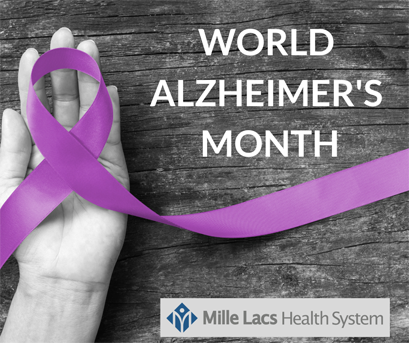World Alzheimer’s Month
September 16, 2022
Everyone experiences occasional memory lapses, especially as they age. But how do you know when memory lapses are due to normal aging and when they should be a cause for concern?
Misplacing the car keys or not remembering what you went to grab in the other room can be frustrating but shouldn't necessarily be concerning. When forgetfulness starts to impact a person’s everyday life, however, it may be a sign of dementia or Alzheimer’s disease.
Dementia is a collective name for progressive degenerative brain syndromes that affect memory, thinking, behavior, and emotion. Alzheimer’s is the most common type of dementia accounting for 60% - 70% of the cases, and affecting over six million people in the U.S.
Signs of Alzheimer’s may be obvious to family members or friends but not to the person experiencing the symptoms. The most common early sign is memory loss, especially forgetting recently learned information. Other signs to watch for include: difficulty in finding the right words or understanding what people are saying, difficulty in performing previously routine tasks, failure to recognize people or objects, trouble handling money or paying bills, repeating questions, and personality/mood changes.
If you start to notice changes in the mental ability or behavior in a loved one, it’s a good idea to encourage them to schedule an appointment with their primary care provider to discuss concerns.
Although there is no cure for Alzheimer’s, early detection can provide access to treatments that may delay progression of the disease, improve quality of life, and allow your loved one to maintain independence longer.
